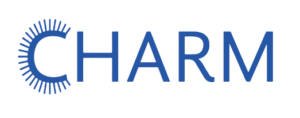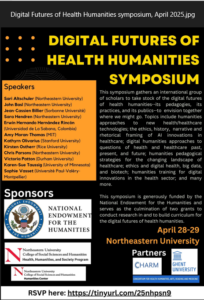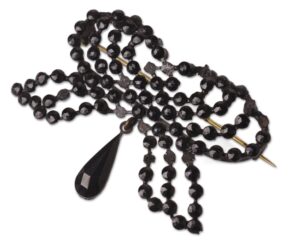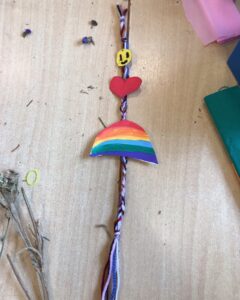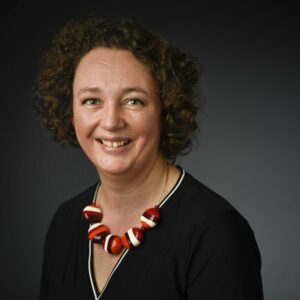CALL FOR APPLICATIONS
LITERARY AND CULTURAL STUDIES IN HEALTH HUMANITIES
LITERATURE AND CULTURE AS PRACTICES OF CARE
Ghent, 27-29 August 2025
Venue: Museum dr. Guislain, Jozef Guislainstraat 43B, 9000 Ghent
In recent decades, literary and cultural studies have secured a rightful place within the (Critical) Medical and Health Humanities. Initially, literary studies played a foundational role in shaping discussions on the relationship between literature and medicine (Brody, Charon, Frank). Today, they contribute more broadly to analysing narrative and textual representations of illness, death, and care while offering theoretical and methodological insights that expand our understanding of health and well-being. Applied literary studies, for instance, have influenced reading and storytelling practices in clinical, therapeutic, and community settings. Literary and cultural scholars have also been central to the development of the Critical Medical Humanities and Health Humanities, which challenge dominant perspectives on health, embodiment, and medical ethics. This is reflected in key journal publications and the growth of international networks, such as the CHARM Network.
This three-day interdisciplinary seasonal school aims to highlight the complexity of perspectives that literary and cultural studies bring to the (Critical) Medical Humanities. Literature provides a unique space to explore embodied experiences, affective and narrative complexity, and the entanglement of cultural, sociopolitical, and medical imaginaries. At the same time, we critically examine how this interdisciplinary engagement affects literature itself. To what extent can and should literary and cultural scholarship resist instrumentalization? How can we contribute to the broader Medical Humanities without reducing literature and culture to mere tools for healthcare interventions? The societal value of Health Humanities research is evident. It serves as a corrective to a rigid biomedical approach that risks overlooking the human aspects of care. At the same time, our seasonal school responds to a call for action by Neil Vickers and Derek Bolton (Being Ill: On Sickness, Care and Abandonment, 2024) to bridge Health Humanities with recent biomedical developments.
Each of the three days will feature lectures from experts in various fields, providing a solid theoretical foundation. These lectures will be complemented by reading sessions, workshops and discussions where participants can explore relevant research methods and case studies. A central part of the programme will be the discussion of students’ own papers (see below, to be submitted in advance), which will provide in-depth and constructive feedback on their work.
Our planned outreach event (August 28) will bring together scholars and practitioners for an in-depth discussion on the role of literature, art, and culture in health and care.
CONFIRMED EXPERTS
Neil Vickers is Professor of English Literature and Health Humanities and Co-Director of the Centre for the Humanities and Health at King’s College, London. Trained as an epidemiologist, he is the author of Coleridge and the Doctors: 1795-1806 (Oxford UP, 2004) and (with Derek Bolton) Being Ill. On Sickness, Care and Abandonment (University of Chicago Press, 2024). He has published widely on illness narratives and is currently working on a history of the medical humanities.
Laura Wittman is associate professor of Italian and French literature and culture at Stanford University and co-director of the Medical Humanities Workshop at the Stanford Humanities Center. She is a cultural and literary historian whose work focuses on how modernity articulates new relationships between religious experience, embodiment, mortality, health, and politics. She is the author of The Tomb of the Unknown Soldier, Modern Mourning, and the Reinvention of the Mystical Body (University of Toronto Press, 2011) and is currently completing a book entitled Faith in the Age of Irony, which explores visions of the afterlife in modern literature and culture through Lazarus stories as a window into our changing attitudes toward the ‘good death’. She is currently working on television and film representations of illness and health.
Thor Magnus Tangerås is Associate Professor of Rhetoric and Narrative Methods at Kristiania University College (Norway). His research focuses on transformative aesthetic experiences, bibliotherapy and literary mediation practices. He is the author of Literature and Transformation: A Narrative Study of Life-Changing Reading Experiences (Anthem Press, 2020). He has published a number of articles on the methodology of Shared Reading, a literary care practice on which he is finishing a book (in Norse).
Alice Scavarda is Assistant Professor at the Department of Cultures, Politics and Society at the University of Turin (Italy). She is a medical sociologist and co-founder and co-director of the international research group ESA Epistemic Community on Welfare Disability Policies in Europe (2021-2023). She is a member of the Advisory Board of the European Society for Health and Medical Sociology (ESHMS) and a founding member of Graphic Medicine Italia. Her main research interests are disability, chronic disease and prevention, with a focus on stigma and medicalisation. She is also interested in analysing the methodological and ethical features of creative methods, in particular comics and applied theatre. She holds the first CHARM chair (UGhent, 2024-25).
Dieter Declercq is Lecturer in Medical Humanities (Narrative Medicine) at the University of Glasgow. Before coming to Glasgow, he was Senior Lecturer in Film and Media at the University of Kent, where he co-founded and co-directed the Centre for Health and Medical Humanities. He is the author of Satire, Comedy and Mental Health: Coping with the Limits of Critique (Emerald Publishing, 2021). He has published widely on the use of satire and humour in the context of mental health.
Leni Van Goidsenhoven is Assistant Professor of Critical Disability Studies at the University of Amsterdam. Her research focuses on disability, illness, neurodiversity, inclusive learning environments and representations of non-normative bodies in art and literature. She is particularly interested in crip theory, madness and disability studies, (speculative) care ethics and cultural studies. She co-founded both the Autism Ethics Network (funded by FWO) and the Neurodivergent Humanities Network (funded by NNMHR). She has published widely on related topics such as autism, outsider art and developmental diversity.
ORGANIZING & SCIENTIFIC COMMITTEE
Ghent University:
Louise Benson James (CHARM – Literary Studies)
Piet Bracke (CHARM – Sociology)
Zoë Ghyselinck (CHARM – Literary Studies)
Tessa Kerre (CHARM – Medicine)
Jürgen Pieters (CHARM – Literary Studies)
Kris Rutten (Research Group Culture and Education)
University of Antwerp:
Vanessa Joosen (Literary Studies, Metrodora)
Vrije Universiteit Brussel:
Hannah Van Hove (Literary Studies)
KU Leuven:
Joris Vandendriessche (History, Leuven Center for Health Humanities, LCH²)
REGISTRATION
Participating PhD students (as part of the Doctoral training programme):
Please send your application (paper in English, ca. 2000-3000 words; this can be a work in progress, the outline of your research plan if you are a starting PhD student, a draft chapter, a try-out version or full paper for a conference presentation, or any material related to your ongoing or upcoming research) to zoe.ghyselinck@ugent.be and indicate the following:
- Your position (PhD student, postdoctoral researcher, or other),
- Your student number (if you are affiliated with Ghent University)
Deadline for applications: 15 June 2025
Interested in participating in the discussions without presenting a paper? Register via this link by 20 August 2025.
TENTATIVE PROGRAMME
Wednesday August 27
09.00-10.30: Lecture 1_ Neil Vickers: “Thoughts on Poetry as a Practice of Care” + discussion
Coffee break
11.00-13.00: Presentations by 3 students, followed by discussion, reflection and feedback on methods and contents of papers sent in advance
13.00-14.00: Lunch
14.00-15.30: Presentations by 2 students
Coffee break
16.00-17.30: Lecture 2 (Alice Scavarda: tba) + discussion
18.30-20.30: Group dinner
Thursday August 28
08.30-9.00: Welcome
09.00-10.30: Lecture 3_ Laura Wittman: “Death on TV: cultures, clashes, and care.” + discussion
Coffee break
11.00-13.00: Presentations by 3 students
13.00-14.00: Lunch
14.00-15.30: Presentations by 2 students
Coffee break
16.00-17.30: Lecture 4 (Thor Magnus Tangerås: tba) + discussion
19.00-21.00: Outreach Event
Friday August 29
09.00-10.30: Lecture 5 _ Dieter Declercq: “Medical & Health Humanities as Helping Work?” + discussion
Coffee break
11.00-13.00: Presentations by 3 students
13.00-14.00: Lunch
14.00-15.30: Presentations by 2 students
Coffee break
16.00-17.30: Lecture 6 _ Leni Van Goidsenhoven: “Reading Porously: Neurodiversity and how to read beyond what we think we know.” + discussion
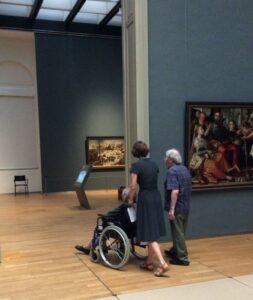 What can technology, art, and care mean for one another in times of ageing populations, digital transformation, and an increasing need for connection?
What can technology, art, and care mean for one another in times of ageing populations, digital transformation, and an increasing need for connection?